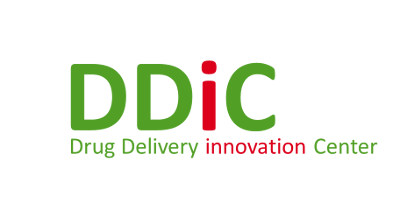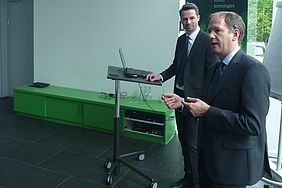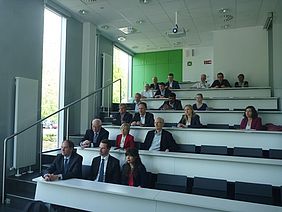On Wednesday, 3rd May 2017, Prof. Dr. Jörg Breitkreutz and Dr. Julian Quodbach visited INVITE within the framework of the INVITE colloquium and gave a presentation on their research results on "Printing Technologies in Pharmaceutics". Both scientists work at the Institute of Pharmaceutics and Biopharmaceutics at Heinrich-Heine-University Duesseldorf. Along with colleagues from INVITE and Bayer they were discussing the opportunities and risks of this new technology.
The technological development of 2D- and 3D-printing has advanced greatly in the last ten years leading to manifold applications (Optoelectronics: solar modules), which inspires the pharmaceutical industry. Pharma industry has great interest in realizing this technique to use e.g. the advantages of an exact dosage matched with the needs of the individual patient (personalized medicine). In their presentation Prof. Breitkreutz and Dr. Quodbach showed an overview of the recent literature, different printing technologies (Inkjet printing, Tampon printing, electrostatic printing) and already realized application examples (Aprecia ZipDose®).
For launching this technology as manufacturing method in the pharmaceutical industry extensive investigations and evaluations by competent authorities are mandatory. Especially the process analytical technologies (PAT) plays a key role to ensure online quality control. With previous developments in mind Prof. Breutkreutz venture the prognosis that Printing Technologies will become a standard technique for manufacturing of personalized drugs in a few decades. Currently 2D- and 3D-printing are still niche applications. Therefore the scientists see great potential for future projects. At this point it shall be mentioned that these activities will be investigated in the Drug Delivery Innovation Center (DDIC) through cooperation of INVITE and Heinrich-Heine-University Duesseldorf.




